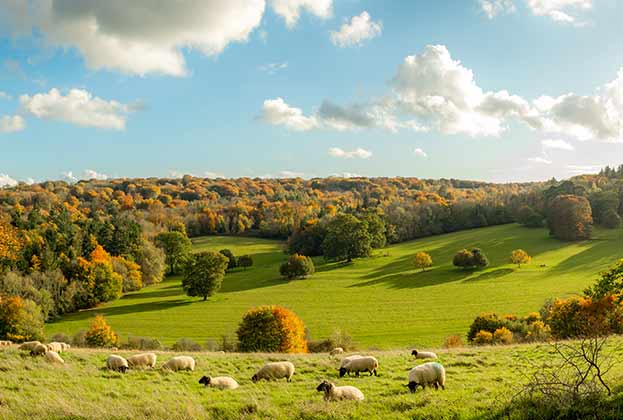Viticulture is one of the fastest growing areas of the British economy and an opportunity for landowners to diversify.
Even the most optimistic person would describe the present economic, political and climatic period as volatile and farming is far from insulated from this volatility. Viticulture is a flexible way to diversify and almost any landowner with the right land type and aspect can get involved, needing only around three hectares to potentially turn a profit.
Yields however can be unpredictable with one of the worst years on record, 2012, being followed by the best only six years later. Both grapes and the financials remain at the mercy of external factors from weather to politics. However, with informed objectives and quality management, a successful business can be developed.
Here are five essential steps for creating a successful vineyard.
1. Market
A business must know its customer and whether the price they are willing to pay delivers a profitable margin above costs incurred. Export markets, especially to the Far East, are currently booming but there is a cost to accessing these areas. A demand for the product must first be established which requires strong investment in marketing to access wholesale and retail markets.
2. Business plan
Robust interrogation of the vision for the enterprise will have a significant bearing on all elements of the venture, from site selection through to choosing the right variety of grape and growing and marketing the final product.
Having on-site own processing units, for example, allows finer tuning of the end product but comes at a high initial cost and employment of specialist vintners may be necessary.
3. Site
Ideal land for viticulture in Britain often means sheltered, south-facing slopes away from the coast but no higher than 100 m above sea level. The quality of the end product relies heavily upon land choice. Using GIS to find sites that take into account all aspects of the land and climate is essential to ensure grape growing conditions are optimised.
4. Expertise
The sensitivity of vines to prevailing conditions requires informed, precise and regular attention to minimise risk and maximise opportunity. Partnering or contracting services from an expert third party can still deliver the satisfaction of a new undertaking while avoiding mistakes and delivering healthy revenue.
5. Added value
Diversification into wine production often provides additional opportunities including those below.


.jpg)
.jpg)

.jpg)
.jpg)
.jpg)
.jpg)
.jpg)
.jpg)
